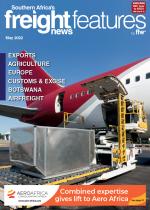The digital revolution currently under way in Sub-Saharan Africa offers enormous potential for economic growth and agricultural productivity.This is according to a report recently released by the Food and Agriculture Organization of the United Nations (FAO) and the International Telecommunication Union (ITU) after an in-depth look at the status of digitalisation in the region. While coastal countries have been found to benefit from fast internet, thanks to undersea cables, 4G mobile networks are expanding rapidly across the continent. Kenya's capital, Nairobi, is more commonly being referred to as the "Silicon Savannah" of Africa because of its buzzing digital economy.Despite the digital developments, the reality, however, is that most of Sub-Saharan Africa remains unconnected with at least one-third of the population still out of reach of mobile broadband signals, and only 28% have any access to the internet.According to the report, this has implications for the local agricultural sector, where productivity could be easily boosted by new digital technologies such as e-commerce, sensors, drones and better weather forecasts.Africa still has the largest area of arable uncultivated land in the world – and thanks to its youthful population and vast natural resources, is uniquely positioned to double or even triple agricultural productivity going forward. For this to happen, a digital transformation of the food and agriculture sector is needed. This requires tackling existing barriers, such as limited infrastructure in rural areas, insufficient funding for agriculture, and inadequate investment in research and development, agro-innovation and agricultural entrepreneurship. "There is an urgent need to invest in last-mile connectivity to strengthen digital infrastructure generally and enable the development of inclusive digital agriculture strategies to advance agricultural transformation in Africa," said Anne-Rachel Inné, ITU’s regional director for Africa. Titled the Status of Digital Agriculture in 47 Sub-Saharan African Countries, the report found that such an increase, however, would require the digital transformation of the agricultural sector at large. "Agriculture modernisation and rural transformation provide real opportunities for maximum impact on growth and shared prosperity for countries in the Africa region,” said Abebe Haile-Gabriel, FAO's assistant director-general and regional representative for Africa. “Digitalisation helps maximise the benefits digital technologies can bring in transforming societies, improving livelihoods through better production, better nutrition, a better environment, and a better life, leaving no one behind.”Haile-Gabriel said going forward it was important that governments be encouraged to develop national digital agriculturestrategies, create a more conducive business environment for investors, and increase collaboration among countries, international organisations and the private sector, to create an inclusive set of digital public goods in agriculture that are sustainable and scalable.He said how Sub-Saharan African countries position themselves to harness and deploy digital technologies would ultimately determine the future competitiveness of the region’s agriculture sector.

